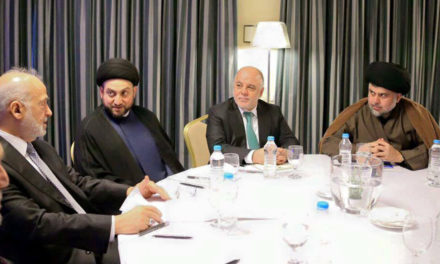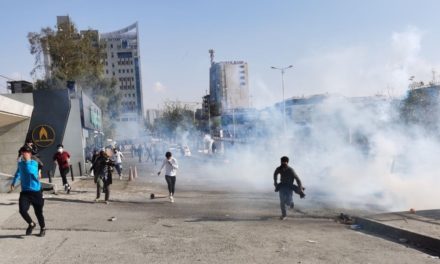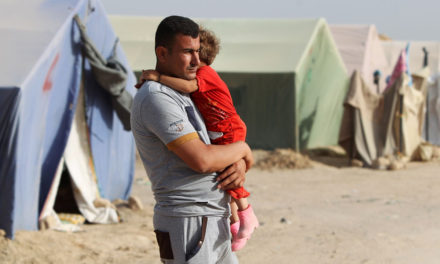The recently signed military agreement between the U.S. Department of Defense and the Ministry of Peshmerga Affairs was hailed by Kurdish officials as a significant new phase in cooperation between the United States and the Kurdistan Region. Without the benefit of full disclosure, some media reports made a number of erroneous claims about the implications of the agreement, namely, that it signifies an unprecedented willingness by the United States to bypass Baghdad and provide direct military support to the Kurds; that the agreement is some sort of reward to the KRG in recognition of Peshmerga gains against ISIL; and that US bases would be subsequently established in northern Iraq.
The Iraqi Ministry of Defense responded to these claims by issuing a statement on July 21 clarifying that the memorandum of understanding had been signed with the prior approval and full consent of the Iraqi government; that military aid would continue to be dispersed pending the go-ahead from Baghdad; and that support to the Peshmerga outlined in the agreement would be conditioned by the United States on the KRG’s full cooperation and coordination with Baghdad on operations in Ninewa. Those conditions include the withdrawal of Kurdish forces from areas that are liberated in Mosul province going forward, in addition to a commitment by the Peshmerga ministry to implement serious reforms to enhance transparency.
The MoU signed on July 14 allocates $415 million to essentially cover Peshmerga salaries. The KRG has continued to struggle financially despite opting to pull out of a revenue sharing agreement with Baghdad last summer in favor of a more lucrative, undisclosed deal to independently export oil via Turkey. While military assistance to the KRG has continued to flow through the international coalition, the Kurdistan Region has witnessed demonstrations by frustrated Peshmerga fighters who have not been paid for months.
But Kifah Mahmoud, an adviser to Masoud Barzani, explained to Bas News after the signing of the MoU that “the achievements compelled the international community to recognize Peshmerga as an effective force in the anti-IS campaign.” Mahmoud also claimed that as a result of the agreement, US assistance to the Kurdistan Region and Peshmerga would “no longer go through Baghdad although it will be delivered in collaboration with the Iraqi government.”
Professor George Joffe, a Middle East expert from Cambridge University, went a step further when asked by Al-Arabiya whether the agreement would anger Baghdad, declaring, “it is an attack on Iraq’s sovereignty, but it [Baghdad] can not argue against because Americans are paying the bills.”
Meanwhile, the Financial Times claimed that the US had agreed to give “direct military aid” to the Peshmerga, explaining that “the US has in the past provided arms to the Kurds through the Iraqi government and military but appears to have changed tack in response to the rapid advances of [ISIL] in recent months.” There were even claims cited in Al-Monitor that five US bases would be built in the Kurdistan Region as part of the agreement, though this was denied a week later by Jabar Yawar.
The July 21 press statement from the Iraqi Ministry of Defense made following clarifications:
- The agreement between the Ministry of Peshmerga Affairs and the Department of Defense is not a treaty but a memorandum of understanding that outlines conditions for the provision of salaries to the Peshmerga by the United States;
- The MoU does not stipulate the presence of American or coalition bases. This is a sovereign matter that is within the purview of the federal government;
- Approval was sought by the central government to provide financial aid to the Peshmerga, but the conditions within the MoU were stipulated by the US. Those conditions include:
- Increasing the number of Peshmerga fighters along defensive lines to prevent incursions by Daesh;
- Supporting coalition efforts to train and equip Hashd volunteers within Kurdistan Region territory;
- Full coordination and cooperation with the Iraqi government in operations to liberate Mosul;
- Continued support to ISF who are positioned within Kurdistan Region territory for Mosul operations;
- Supporting and enabling a temporary increase in coalition presence within Kurdistan Region territory for Mosul operations;
- Withdrawing Peshmerga and all other KRG forces from liberated areas within Mosul province according to a timetable determined by the Iraqi government;
- Implementing essential reforms within the Ministry of Peshmerga Affairs to enhance financial transparency and provision of salaries.
What is clear from these details is that the agreement’s primary purpose is to guarantee coordination between Erbil and Baghdad in order to enhance the effectiveness of military operations in Mosul. As Michael Knights explains, the agreement does not imply “direct arming” since aircraft manifests are approved by Baghdad before assistance is delivered directly to the Kurdistan Region.
U.S. officials have also publicly confirmed the nature of the agreement, as the State Department’s Mark Toner noted, “We’re working hard to support those efforts; we’re doing that though through the command and control of the Iraqi government.”
While officials in the Kurdistan Region have been keen to characterize this agreement as yet another step towards securing an independent state, this milestone should be viewed within the confines of some finite, near-term objectives. As the assault on Mosul draws closer, Baghdad, the Kurds and the United States all recognize that an effective operation to retake ISIL’s last remaining major stronghold in Iraq will require teamwork between forces that are sufficiently trained and equipped for the task at hand.

Ali Hadi Al-Musawi
Ali Hadi Al-Musawi is an Iraqi analyst and contributing writer at 1001 Iraqi Thoughts.










